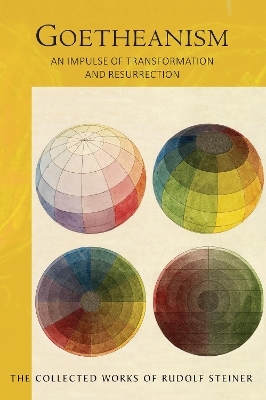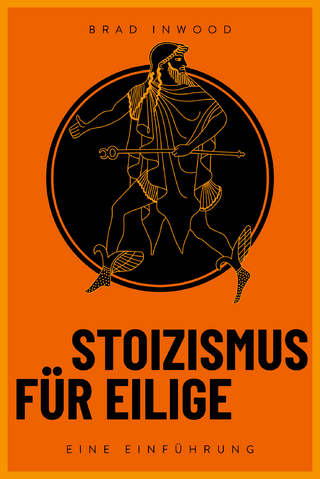
Goetheanism
Rudolf Steiner Press (Verlag)
978-1-85584-667-8 (ISBN)
‘There will be a resurrection – a resurrection that should not be imagined politically… but it will be a resurrection. Goetheanism still rests in the grave as far as external culture is concerned. But Goetheanism must rise again.’
In the first winter following the Great War, Rudolf Steiner appealed to the spirit of Central Europe – which he characterized as Goetheanism – that had been languishing for decades. Only such a spiritual force could provide answers to the pressing social, national and international questions of the time. A new constellation of polar, hostile opposition had emerged after the war, with the East and Bolshevism on one side, and the victorious West and Americanism on the other. In the middle, with no apparent role or hope for the future, was the defeated Central Europe. But this ‘centre’, beseeched Steiner, should not become a vacuum. Rather, it needs to discover its true, world-historical task.
In this context, with deep seriousness and urgency, Rudolf Steiner speaks of the work of Goetheanism, which begins with understanding the threefold human being and leads to threefolding the social organism. Steiner goes on to describe the decisive role of the consciousness soul in the present epoch, and how Schiller’s Aesthetic Letters and Goethe’s Fairy Tale relate to contemporary challenges. He discusses a multitude of seemingly diverse but interrelated themes, such as the migration of peoples in the past and present, the thinking of John of the Cross, and the modern path of spirit cognition. The first English publication of these lectures features an introduction by Christian von Arnim, notes and an index.
Rudolf Steiner (1861-1925) called his spiritual philosophy “anthroposophy”, meaning “wisdom of the human being”. As a highly developed seer, he based his work on direct knowledge and perception of spiritual dimensions. He initiated a modern and universal “science of spirit”, accessible to anyone willing to exercise clear and unprejudiced thinking. From his spiritual investigations Steiner provided suggestions for the renewal of many activities, including education (both general and special), agriculture, medicine, economics, architecture, science, philosophy, religion and the arts. Today there are thousands of schools, clinics, farms and other organizations involved in practical work based on his principles. His many published works feature his research into the spiritual nature of the human being, the evolution of the world and humanity, and methods of personal development. Steiner wrote some 30 books and delivered over 6000 lectures across Europe. In 1924 he founded the General Anthroposophical Society, which today has branches throughout the world.
| Erscheinungsdatum | 29.10.2024 |
|---|---|
| Reihe/Serie | The Collected Works of Rudolf Steiner |
| Einführung | C. Von Arnim |
| Übersetzer | C. Von Arnim |
| Verlagsort | East Sussex |
| Sprache | englisch |
| Maße | 155 x 235 mm |
| Themenwelt | Geisteswissenschaften ► Philosophie |
| Weitere Fachgebiete ► Anthroposophie | |
| ISBN-10 | 1-85584-667-5 / 1855846675 |
| ISBN-13 | 978-1-85584-667-8 / 9781855846678 |
| Zustand | Neuware |
| Informationen gemäß Produktsicherheitsverordnung (GPSR) | |
| Haben Sie eine Frage zum Produkt? |
aus dem Bereich


